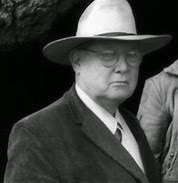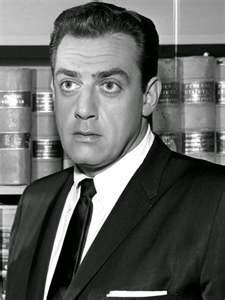Perry Mason, You and Me by Debra H. Goldstein
Looking back, I can identify many people who made me the person I am. There were family members, teachers, and people who passed through my life for a moment, but one “person” stands out. Perry Mason.
During junior high and high school, my routine was to attend class, participate in after school activities and plop on our den’s couch at five p.m. That’s when Perry Mason went on. During the first commercial, I’d empty the dishwasher; at the second commercial, I’d set our dinner table; my dad got home from work during the third commercial and our family sat down for dinner when the show ended.
I thought Perry Mason/Raymond Burr was perfect. He creatively thought outside the box, was considerate, had cute dimples when he smiled, treated Della, his secretary, well, and had an office and décor that appealed to me. Perry Mason influenced me to become a lawyer. Of course, reality was different. I don’t have dimples. Although I was a litigator for twelve years, a secretary neither physically shared my desk all day nor sat at counsel’s table with me, and my witnesses didn’t consistently confess.
The original and in my mind “real” Perry Mason show was on from 1957-1966. Considering my age and the time of day I watched it, the episodes I was glued to were re-runs. Recently, I discovered Perry Mason running twice a day on an oldies channel. Using modern technology, I set my DVR to capture “first run” episodes. This has allowed me to binge watch it from its beginning episodes. To my surprise, the show holds up.
Maybe it is the fact that I’m not used to seeing television shows in black and white. Maybe it is the simplicity of the sets, but I think the real reason is that it is written to a formula. Because characters, conflicts and a relationship to Perry are introduced in the first few minutes, I am engaged by the first commercial. By the second commercial there is a dead body, an accused party who Perry knows isn’t telling him everything, and some fancy footwork between Perry and Lt. Tragg. The next segment takes place in the courtroom. Things look bad for Perry’s client, but a word or a scene triggers something in Perry’s mind that results in him figuring out the real culprit. Through spectacular questioning (which might be considered leading), he elicits a confession from a witness on the stand or a bystander sitting in the courtroom (and the judge never cuts that person off). The final moments are the weakest of the show – it is always a scene where Della and Perry or Perry, Della, and investigator Paul Drake discuss how Perry figured it out and go over the motive and unseen actions that explain the murder.
From a writer’s perspective, the show’s formula almost works. Scene 1 – set up the conflict and the murder; scene 2 – the deadly middle where everyone becomes suspect; scene 3 – the solution. The only weak point is the final segment. It is always the writer’s sin of being a contrived dump of information. Still, there are plenty of things for a writer to take away from each Perry Mason episode.
1) Write a good story.
2) Set up the plot and then have pacing ups and downs in terms of scenes with conflict, and tension.
3) Make characters realistic, but give them traits that when the character comes back on the scene, the reader or viewer immediately associate a positive or negative feeling with them.
4) Keep dialogue on point.
In retrospect, I realize there also were many subtle things I took away from the show.
1) Common curtesy can exist between characters – even when Burger and Mason were on opposite sides of an issue, they might get sarcastic, but they did it with a tone of respect.
2) Women could be anything they want – Perry always went up against a male lawyer, but if one watched carefully, one realized the sex of the judges was evenly divided between males and females. In a way, this was radical. In real life, women were barely represented in law school classes until the mid to late 1970’s. When I became a judge in 1990, it was still a novelty. (ask me the stats sometime)
3) Precise use of language is key to effective communication – and sometimes omission of words can be the friend of a mystery writer.
There is no question that Perry Mason played a big role in my life. Were you influenced by any TV shows or books? How?



